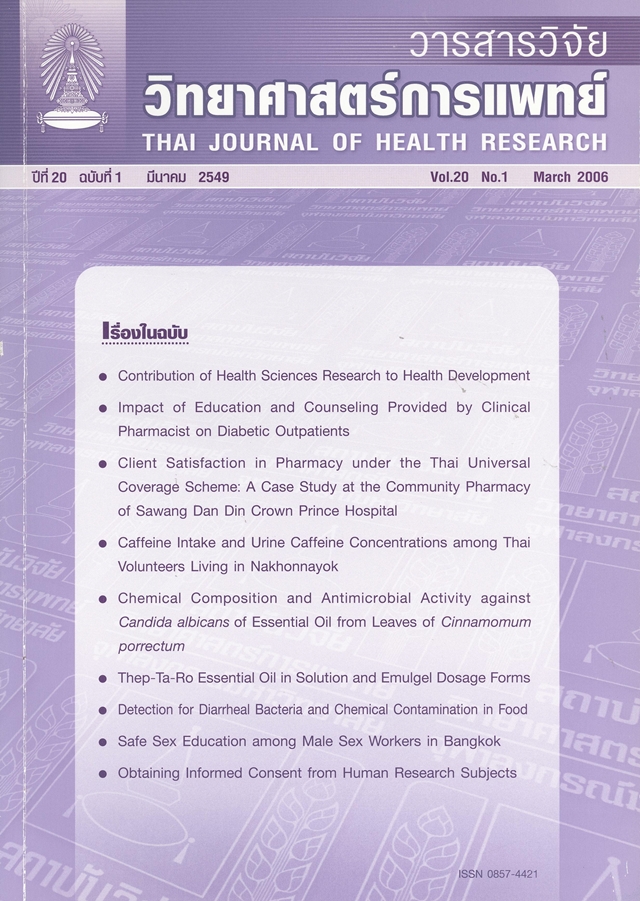Caffeine Intake and Urine Caffeine Concentrations Among Thai Volunteers Living in Nakhonnayok
Keywords:
caffeine, community, consumption, health effectsAbstract
Caffeine is a psychoactive substance that is not legally regulated. Moreover, it is found in various forms of foodstuff. This study aimed to investigate caffeine intake and knowledge concerning caffeine health effects in a community of Thailand, Nakhonnayok province. A questionnaire was used to survey how people consumed caffeine-containing foodstuff daily. Urine caffeine concentrations analyzed by GC/NPD method were used to estimate how much caffeine has been consumed in this community based. The study showed that there were a large number of people in this population who did not know if caffeine had health effects and some did not know if caffeine could be found in foods other than coffee and tea. Coffee was an important dietary source of caffeine for this population. No significant correlation of gender and age of the respondents on types of daily beverage intake were found. Urine caffeine concentrations were found up to 9,482 ng/mL. This maximum concentration was quite high which indicated that some had daily ingested large amount of caffeine containing food stuffs. Thus, the education program is needed for the studied community in order to prevent future excessive caffeine consumption unintentionally.







